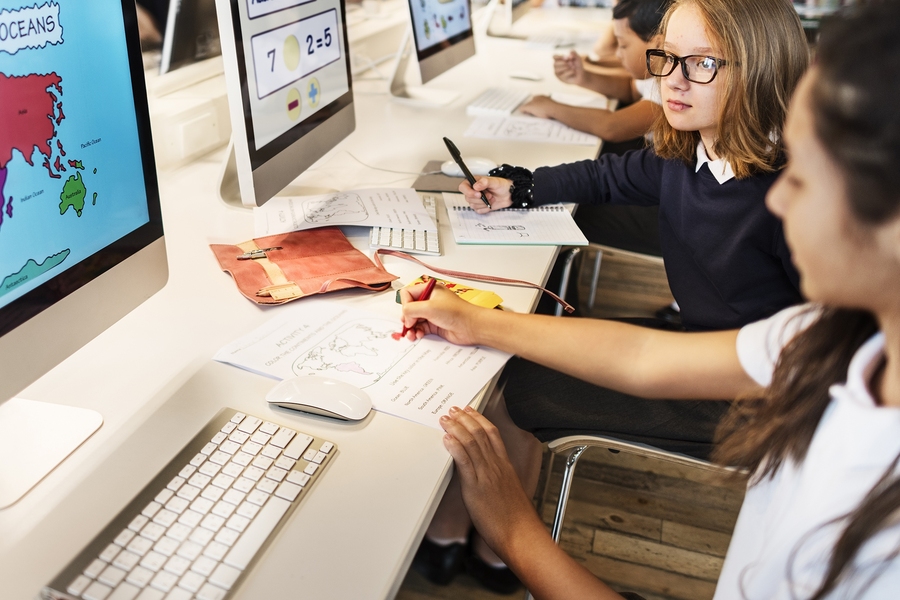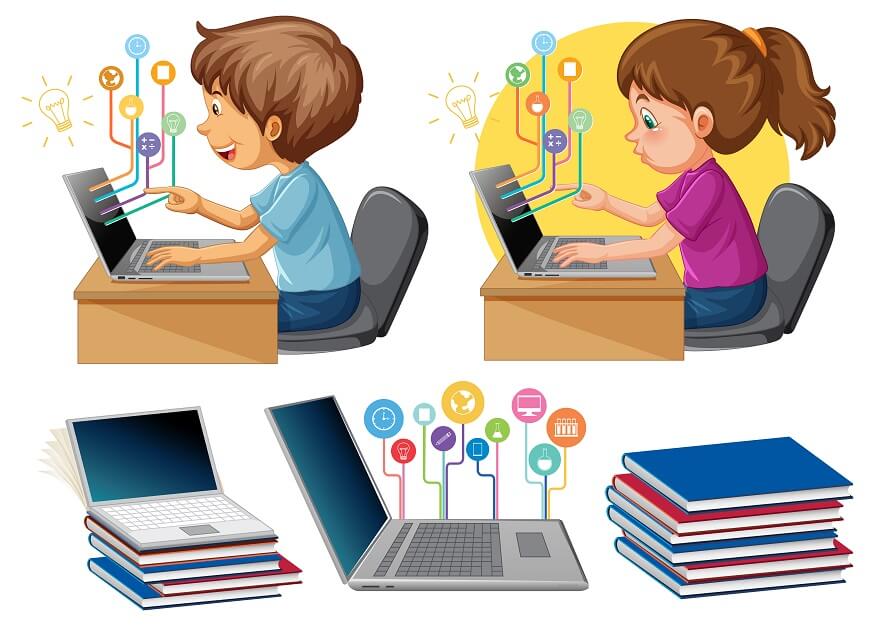Empower Your Business Operations with the Latest AI Tools Available
Empower Your Business Operations with the Latest AI Tools Available
Blog Article
Crucial Resources for Organizations to Enhance Their Method to Innovation Education
As institutions make every effort to improve their innovation education structures, the recognition and implementation of crucial sources end up being vital. Innovative curriculum styles that incorporate innovation, along with reliable online learning platforms, can considerably widen instructional availability and engagement. Furthermore, professional advancement chances for instructors play a critical function in ensuring they are geared up with current approaches. Yet, the discussion does not finish there; the prospective influence of collective devices and community partnerships warrants even more exploration. What might these aspects collectively add to a much more durable modern technology education and learning landscape?
Cutting-edge Curriculum Layouts
In today's swiftly evolving technical landscape, educators are progressively identifying the requirement for innovative curriculum layouts that efficiently incorporate technology into learning experiences. This assimilation is important for preparing pupils for a future where electronic literacy is vital. Innovative curriculum styles integrate numerous instructional approaches, guaranteeing that modern technology works as a device for boosting involvement and facilitating much deeper understanding.
One effective method is project-based learning (PBL), where trainees engage in real-world problems, using innovation to study, collaborate, and offer their searchings for. This technique not only promotes critical thinking however additionally motivates the advancement of soft skills such as teamwork and communication. Furthermore, adaptive discovering modern technologies can individualize the instructional experience, catering to private knowing designs and paces.
Moreover, interdisciplinary techniques that mix subjects, such as incorporating scientific research and modern technology with the arts, aid create a more alternative learning atmosphere. This cultivates creativity and innovation, equipping students with the skills needed to grow in a complex, interconnected world. Eventually, innovative educational program layouts are essential for growing a generation of learners who are not just competent in innovation but are additionally experienced issue solvers and essential thinkers.
Online Discovering Platforms
Several educators are transforming to on-line discovering platforms as necessary devices for improving academic access and interaction. These systems assist in a crossbreed knowing setting that suits diverse understanding styles and paces, making education and learning extra comprehensive. They provide a range of sources, including video lectures, interactive simulations, and conversation online forums, allowing pupils to access web content from anywhere at any moment.
Famous on-line understanding systems, such as Coursera, edX, and Moodle, give institutions with the facilities required to supply premium technology education and learning. These systems can be personalized to align with particular curriculum goals and instructional strategies, guaranteeing that institutions can maintain their academic standards while leveraging electronic sources.
In addition, online learning platforms sustain partnership among educators and pupils, fostering a feeling of community and shared finding out experiences. Advanced analytics devices available on these systems enable educators to track trainee progress and engagement, promoting prompt treatments when needed.
Expert Growth Opportunities
Constant specialist advancement is critical for educators looking for to remain abreast of emerging technologies and instructional methods in a rapidly advancing educational landscape (Insurance). To effectively incorporate modern technology into the class, teachers must actively go after chances that enhance their skills and expertise
Institutions should prioritize offering seminars, workshops, and programs focused on the most recent technical improvements and training techniques. These programs can attend to different aspects of technology education and learning, consisting of coding, digital literacy, and making use of instructional software. In addition, partnering with regional universities and tech companies can give instructors accessibility to specialized training and sources.
Online professional development platforms also supply flexibility, enabling educators to participate in self-paced understanding. Webinars and digital seminars can facilitate expertise sharing among teachers worldwide, fostering a global point of view on innovation assimilation.
Furthermore, mentorship programs can link skilled educators with those new to innovation, promoting collaborative knowing and support. By producing a culture of continuous discovering, establishments can encourage instructors to welcome cutting-edge teaching techniques, ultimately enhancing trainee engagement and success in modern technology education and learning. Investing in professional advancement not only advantages educators however likewise considerably enriches the learning experience for students.
Collaborative Devices and Resources
Effective assimilation of technology in education likewise relies on using collective tools and sources that help with communication and synergy among instructors and pupils. Such devices improve engagement and cultivate a society of cooperation, important for contemporary understanding atmospheres. Systems like Google Work Space and Microsoft Teams make Insurance it possible for real-time file sharing, job management, and seamless communication, permitting teams to function with each other efficiently despite geographical obstacles.
In addition, discovering management systems (LMS) such as Canvas and Moodle give structured settings for collaboration, where teachers can produce discussion forums, assign team projects, and promote discussions. These systems not only streamline educational delivery yet additionally encourage peer-to-peer communication, essential for constructing important reasoning and analytic skills.
Furthermore, devices like Padlet and Trello can be used to imagine concepts and take care of tasks collaboratively, boosting project-based discovering experiences. By integrating these collective sources, establishments equip both teachers and trainees to add actively to their finding out journeys. Eventually, the reliable use collaborative devices not just enhances the instructional experience however also prepares trainees to grow in a progressively interconnected world.
Community and Sector Partnerships
Neighborhood and market collaborations play an essential role in improving technology education by bridging the gap between theoretical understanding and useful application. These partnerships provide trainees with real-world experiences, enabling them to apply classroom ideas to real challenges encountered by companies. By engaging with regional companies and community organizations, schools can create vibrant discovering atmospheres that cultivate development and skill advancement.

In addition, these alliances can result in resource sharing, where institutions profit from industry technology, financing, and knowledge. Such support not just enhances educational offerings but likewise helps to cultivate a workforce that is well-prepared for the obstacles of the modern-day economic climate. Inevitably, the harmony created via community and market collaborations is necessary for promoting a culture of continual knowing and adjustment in modern technology education and learning, making certain that organizations continue to be responsive to progressing technological landscapes.
Verdict

One efficient technique is project-based understanding (PBL), where pupils engage in real-world issues, using innovation to study, work together, and provide their findings. Additionally, adaptive understanding modern technologies can customize the academic experience, catering to private discovering styles and speeds.
Moreover, mentorship programs can link experienced educators with those brand-new to modern technology, advertising collaborative knowing and support. By developing a culture of continual discovering, institutions can encourage educators to accept ingenious mentor methods, eventually boosting pupil involvement and success in innovation education. Eventually, the synergy produced with neighborhood and market collaborations is crucial for cultivating a culture of continuous learning and adjustment in modern technology education and learning, making certain that establishments stay responsive to progressing technological landscapes.
Report this page